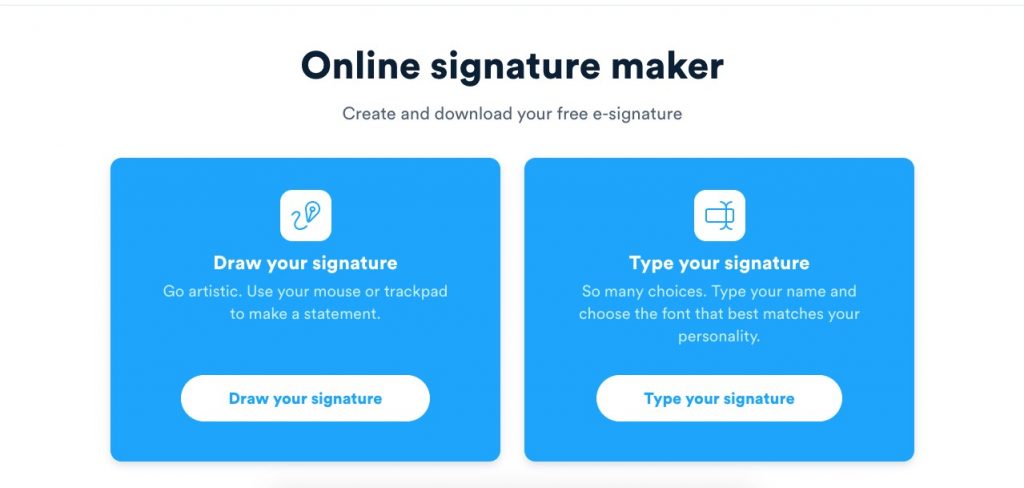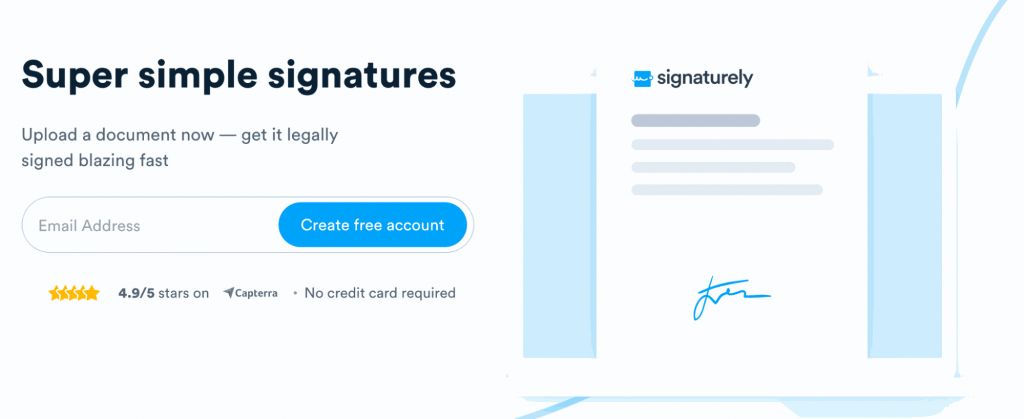A signature is the most basic way to indicate your agreement to a contract. No matter whether your signature’s messy or unusual, it is legally valid.
This truth and the widespread acceptance of electronic contracts justify the question: Can your signature be anything? And what kinds of signatures are valid? This article will answer these and other relevant questions.
Can Your Signature Be Anything?
Your signature on a contract or document makes it legally binding. Even if it’s a simple mark or notation, it still demonstrates your acceptance of the terms and conditions included in the document.
Some people’s signatures resemble a small mark, while others write so fast that their signature looks like scribbled notes. While one should try to be as legible as possible, the neatness or clarity of the signature has no bearing on its validity.
Here are some things to consider when signing documents.
Does your signature have to be your full name?
While signing your full name looks professional and removes ambiguity, no laws require you to do so. That said, the law does require that the mark you place on the paper be your usual way of signing documents.
Can I use my initials as my signature?
Initials are one of the most common signature styles. They are just as valid as any other signature or mark. Whatever signature you use, however, make sure it is consistent across all your legal documents, such as your driver’s license and passport.
Signature Rules
When answering “Can your signature be anything?”, we must cover the rules for a legally binding signature.
- You Have to Mark the Document
Some people like to bring out their inner calligraphers when signing their names. That’s good, but a valid signature can be any mark representing you.
It can be a squiggle, an image, or a simple X. A ‘valid’ signature is any signature that records the parties’ intent in the agreement (more on below).
- You Don’t Need a Pen
Most people use pens for signing documents because pencil marks can be smudged or erased. But a signature signed in pencil is just as valid as one signed in ink.
Some people use stamps as signatures. Nowadays, electronic signatures are all the rage, considering they ensure social distancing and also help reduce paper wastage.
- You Don’t Have to Sign It Yourself
In some circumstances, you may be unable to sign a contract yourself. In these cases, an agent can sign the contract on your behalf. Many business owners give power of attorney to a manager to sign documents on his or her behalf. Likewise, one partner may be given the authority to sign documents on behalf of all partners.
- You Don’t Have To Sign At All
Some arrangements are legally binding without a signature. Emails, for instance, can also indicate agreement to the terms of a contract. Such an arrangement regularly takes place between business people with ongoing relationships.
Some contracts are binding even without a signature. These are contracts where you express oral agreement, which is also valid.
- Electronic Signatures Are Also Valid
Since the passing of the Electronic Signatures in Global and National Commerce (E-SIGN) Act in 2000, electronic contracts and signatures have the same validity as paper documents. Local laws may vary from state to state, but you can generally conduct your business legally with electronic signatures.
What Qualifies As A Legal Signature?
Both handwritten and electronic signatures are considered to be legally binding. Regardless of the format, a signature is considered legal if the other parties signing the contract can give their consent.
In other words, the contract and its contents raise the question of legality more than how the contract is signed. Also, the court will consider whether you intended to sign the document, signifying your agreement to the contract. If these elements are present, the law will consider your contract binding.
That is why getting a free online signature maker to mark all your documents is more efficient.
Create A Legally Binding Signature In Seconds With Signaturely

Since electronic signatures are as valid as traditional ones, why not make your life easier with eSignature software? Sign up for Signaturely and create a professional digital signature within seconds, free of charge. Here’s how to get started:
To begin, create a free account from the Signaturely home page. Next, choose between the option of drawing or typing your signature.
Once you create a signature, you can upload a document to be signed, input the signature, and export the PDF to your device or the cloud.
Signaturely has several cool features, even when using the free version. You can send notifications to signees or check the audit log to see who has changed the document. The paid version offers even more helpful tools.
Signaturely doesn’t just help you create your digital signature. Thanks to 256-bit encryption, their software ensures that your documents remain secure. The software is AATl compliant as well. (Learn more about electronic signature verification here.)
The benefits of using Signaturely are clear: You can save time and paper while signing, tracking, and storing your documents. Signaturely is a complete document management solution with a library of custom contract templates.

Frequently Asked Questions About Signatures
Still wondering how to create a valid signature? Here are some answers to more signature-related questions:
According to the Uniform Commercial Code, a signature can comprise a “word, mark, or symbol.” So, your signature can have symbols unless there is a specific local law against it. While a symbol makes your signature unique, it is easier to replicate than a handwritten signature, which may increase the likelihood of fraud.
When it comes to handwritten signatures, it can be challenging to replicate the exact signature every time. Luckily, not having the exact signature every time is fine. Some variations look more genuine than having the same signature on all documents. That said, you can’t have a completely different signature every time. The best way to ensure a consistent signature is to sign documents with an eSignature
Scribbles and squiggles are genuine ways of signing documents since you provide a mark of identification. However, the issue of consistency also arises with these types of signatures.
Can Your Signature Be Anything? Here’s What You Need To Remember
Most laws state that your signature can be anything if you indicate a willingness to agree to the terms of the contract you’re signing. Electronic signatures are the best way to reduce susceptibility to fraud and avoid the tedious work of signing documents with a consistent style.
